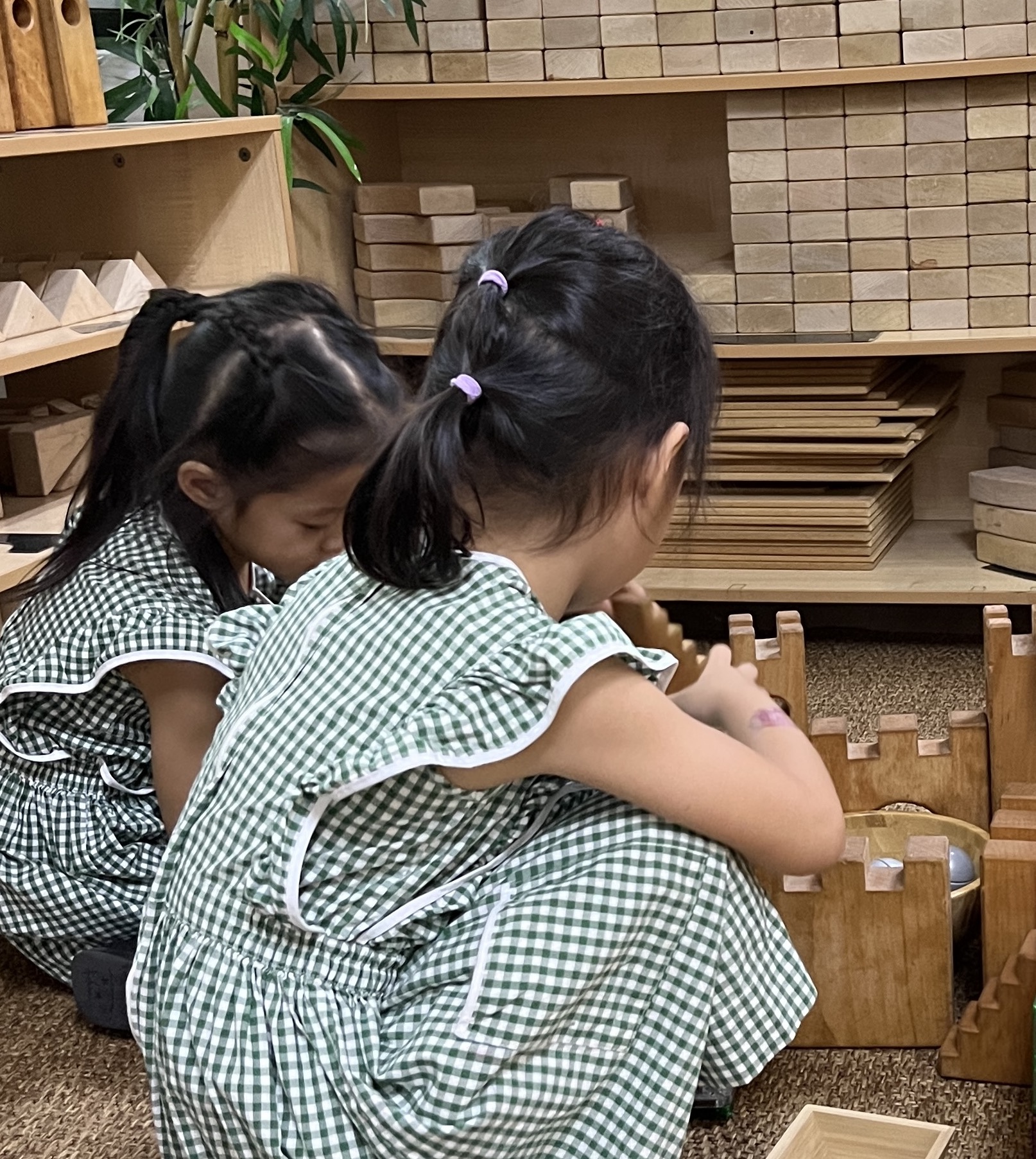At this exciting stage of early childhood, your little one is a budding explorer - curious, observant, and eager to interact with the world. While it may seem that your child is playing and asking questions, they are engaging in deep learning experiences. One area of learning that is often underestimated during these formative years is mathematics. But did you know that mathematics is woven into every aspect of your child’s daily life? It's not just about numbers! For young children, mathematics is about understanding how the world works, recognising patterns, and making connections.
From sorting toys to noticing the rhythm in a song, mathematical thinking is happening all around. As parents, you can help nurture your child's natural curiosity and foster their mathematical thinking with a few simple, playful strategies.
Spark Everyday Conversations
One of the most effective ways to encourage mathematical thinking is by simply talking with your child. Conversations are rich opportunities to build understanding, promote reasoning, and introduce new vocabulary. Your child might point out patterns, shapes, quantities, or something completely unexpected.
Engage in meaningful observations: While walking in the park, shopping for groceries, or reading a story, encourage your child to describe what they see. Ask open-ended questions like:
- “What do you notice about the trees?”
- “Can you find any shapes in the clouds?”
- “Which basket looks heavier?”
These kinds of prompts help children slow down, observe, and compare. The goal isn’t to test their knowledge but to nurture their ability to think and express ideas.
Children often make surprising observations that reveal a budding understanding of mathematical concepts. They might notice how many legs a spider has or that the tiles on the floor make a pattern. Celebrate their discoveries and encourage them to elaborate: “Tell me more about that,” or “Why do you think that happens?”
Embrace the Joy of Collecting
Children are natural collectors. They love to gather items from their surroundings - pebbles, leaves, toy cars, buttons, or stickers. This instinctive behaviour is also a great opportunity to support early math skills.
- Turn collecting into a learning adventure: Encourage your child to gather different items during walks or play. It doesn’t have to be structured - just allow them to follow their curiosity.
- Sort and compare together: Once they’ve gathered items, ask questions that help them group and classify:
- “Can you sort these leaves by size or colour?”
- “Which ones feel smooth and which feel bumpy?”
- “Let’s count how many blue ones you have.”
Through sorting, classifying, and comparing, your child will learn about attributes, categories, and relationships - all key elements of mathematical thinking.
Make Math Fun Through Play
Mathematics is everywhere, and play is one of the most powerful ways to engage your child in it.
- Play games together: Board games, card games, and even simple dice games are excellent for developing number sense, problem-solving, and strategic thinking. Games like Snakes and Ladders, Uno, or matching card games help children practise counting, recognising numbers, and understanding turn-taking and rules.
- Cook and bake together: The kitchen is a math-rich environment! Invite your child to help measure ingredients, follow steps in a recipe, or divide food into portions. This hands-on experience introduces them to concepts like measurement, time, volume, and fractions in a meaningful and memorable way.
- Read math-friendly books: Many wonderful children’s books incorporate math concepts through engaging narratives and illustrations. Look for stories that explore shapes, patterns, sizes, and numbers. Reading together not only supports literacy but also makes math relatable and enjoyable.

Support Their Confidence
One of the most powerful things you can do as a parent is to instil confidence in your child’s abilities.
- Celebrate effort over accuracy: Praise your child’s thinking and perseverance, not just correct answers. For example, “I love how you kept trying different ways to sort those shells!” or “That was a clever way to figure it out.”
- Be patient with mistakes: Mistakes are a natural part of learning. Encourage your child to learn from them and try again.
Fostering mathematical thinking doesn’t require flashcards or formal lessons. It’s about embedding math into everyday life in playful and meaningful ways. By sparking curiosity, encouraging exploration, and celebrating your child’s discoveries, you are laying a strong foundation for their lifelong love of learning - and yes, their inner mathematician.


